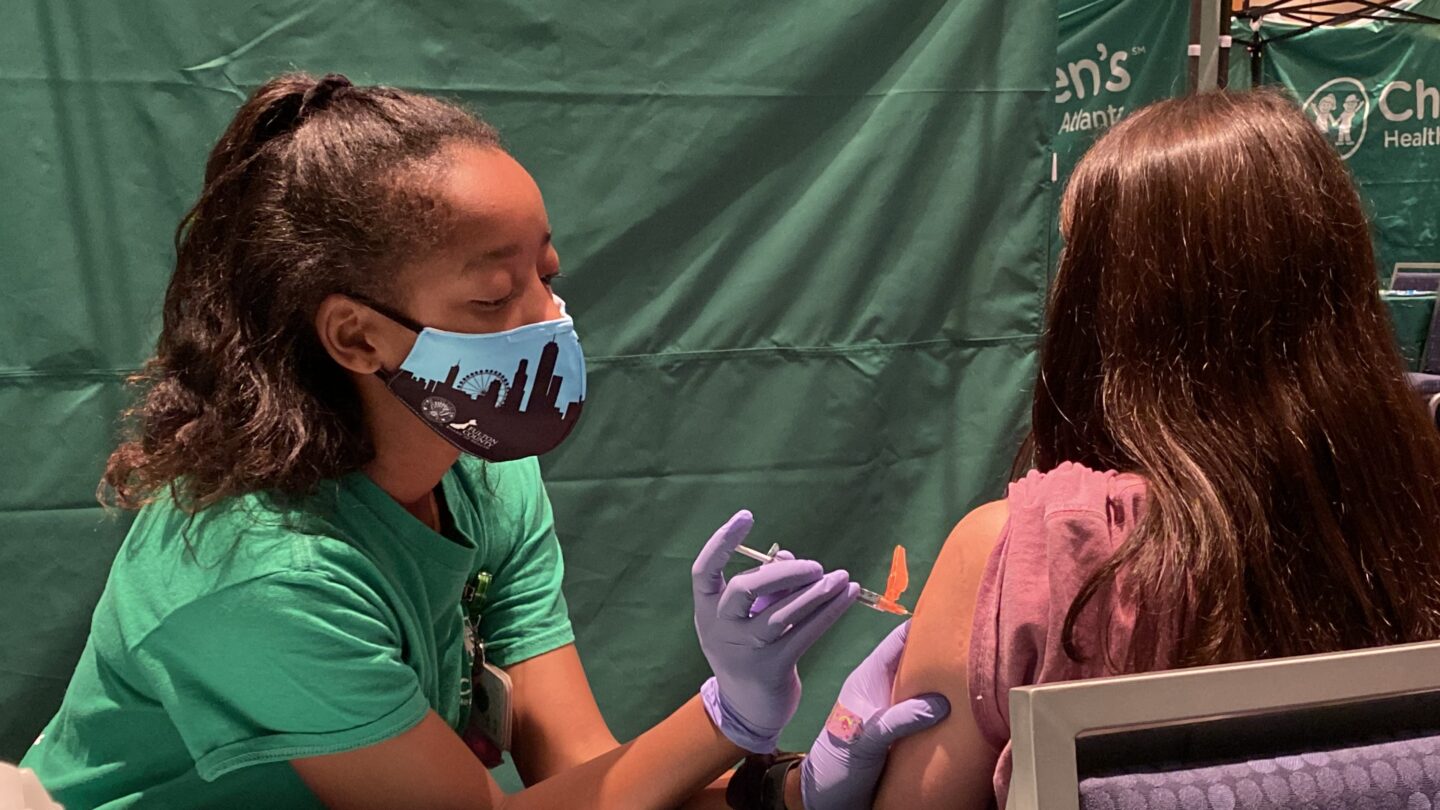The Food and Drug Administration is expected to green light new COVID-19 vaccines any day now to help people protect themselves from the latest strains of the virus.
The new COVID vaccines are designed to keep the shots up to date with the virus, which keeps evolving to evade our immune systems.
“The new formulations cover the variants that have been circulating more recently,” Dr. Peter Marks, who runs the FDA Center for Biologics Evaluation and Research, tells NPR. “So the hope is that the closer we match the strain, the better protection one will have, and perhaps the longer the protection we’ll have.”
The Pfizer-BioNTech and Moderna mRNA vaccines expected to get the go-ahead this week target the KP.2 variant. The Novavax vaccine, which is based on an older technology, targets an earlier strain called JN.1.
An imperfect vaccine can still provide protection
Both target strains have already been overtaken by even newer variants, but they’re all still part of the omicron group. The hope is the vaccines are close enough to boost immunity and protect people through the rest of the surprisingly big summer wave and the surge expected this winter.
“The vaccine is not intended to be perfect. It’s not going to absolutely prevent COVID-19,” Marks says. “But if we can prevent people from getting serious cases that end them up in emergency rooms, hospitals or worse — dead — that’s what we’re trying to do with these vaccines.”
The new vaccines should cut the risk of getting COVID by 60% to 70% and reduce the risk of getting seriously ill by 80% to 90%, Marks says. The shots are expected to become available as soon as this weekend to anyone age 6 months and older.
Vaccination timing could be a personal decision
“Right now we’re in a wave, so you’d like to get protection against what’s going on right now,” Marks says. “So I would probably get vaccinated in as timely a manner as possible. Because right now the match is reasonably close. You’re probably going to get the most benefit you’re going to get from this vaccine against what’s currently circulating. So when this gets into pharmacies I will probably be on line as soon as it gets rolled out.”
To maximize the chances of getting the best protection, people should wait at least two or three months since their last bout of COVID or their last shot to get one of the new vaccines, Marks says.
Some people could consider waiting until September or October if they’re especially concerned about maximizing protection through the winter surge and over the holidays.
“Getting vaccinated sometime in the September to early October time frame seems like a pretty reasonable thing to do to help bring you protection through the December/January time frame,” says Marks. “It doesn’t, like, suddenly stop. This is not like something that suddenly cuts off at three or four months. It’s just that the immunity will decrease with time.”
Vaccination can help slow COVID’s spread
“In my opinion, everyone should get one of the new vaccines,” says Dr. George Diaz, chief of medicine at Providence Regional Medical Center Everett in Everett, Wash., and a spokesperson for the Infectious Disease Society of America. “Being vaccinated yourself will prevent transmission to other people. So that will help reduce the spread of the disease in the community, especially to the most vulnerable people. So you’re not just helping yourself but also helping others.”
In addition, getting vaccinated reduces the risk for long COVID, Diaz adds.
Others question whether everyone necessarily needs another shot, arguing most younger healthy people still probably have enough immunity from all the shots and infections they’ve already gotten to protect them from getting really sick.
“Anyone who wants to get this vaccine should get it,” says Dr. Paul Offit, a vaccine expert at the University of Pennsylvania who advises the FDA. “It certainly makes sense why someone would want to get it because it lessens your chance of getting a mild or moderate infection for about four to six months and to some extent lessens your chances of spreading the virus.” But the calculation could be different for younger people. “Were I a 35-year-old healthy adult who’d already had several doses of vaccine and one or two natural infections I wouldn’t feel compelled to get it,” Offit says.
And regardless of the public health advice, it’s far from clear how many people will want one of the new shots. Only about 22% of eligible adults got one of the last ones.
But for anyone who does want the COVID vaccine, they can get the flu shot at the same time. In addition, federal officials are recommending anyone age 75 and older also get one of the new vaccines to protect against the respiratory syncytial virus, or RSV. Same goes for pregnant people and those ages 65 to 74 who are at high risk of getting seriously ill from RSV.
Older at-risk people will probably be able to get a second shot with the new COVID vaccines in the spring or early summer to help protect them against another wave next summer.
Insured people can get all three vaccines for free if they get their shot from an in-network provider. But a federal program that paid for the vaccines for uninsured adults expired.
“In the public health community we’re very concerned about how they will access protection and looking for ways for how we’re going to solve that problem,” says Dr. Kelly Moore, who runs Immunize.org, an advocacy group. “We know that the people who are uninsured are the least likely to be able to afford becoming ill – missing work, staying home from school.”










